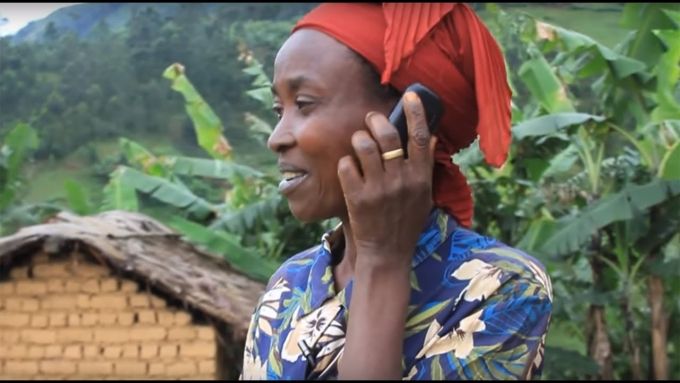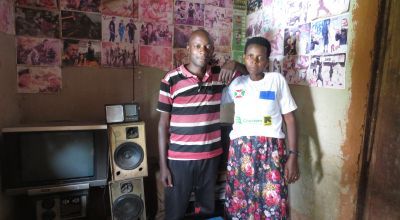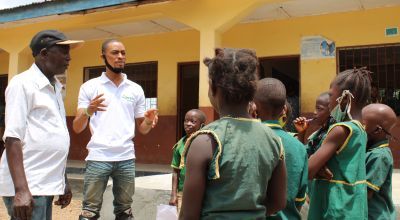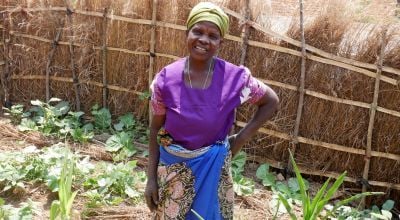
Read our 2023 annual report

Knowledge Hub
Amid the clamour of the busy market, Ndayisenga points out the products for sale at her stall; peppers, chillies, onions, cooking oil, and flour.
“With Concern’s support, I started a stall in this market, buying cooking oil from the traders and selling it to customers,” she says. “This went well, and as my income increased I added other products to sell, now I have many including fresh vegetables and fruit.”
New businesses, no matter how simple, require capital. In Burundi, however, capital is hard to find. Especially if you are a woman.
Burundi is ranked 185th out of 189 countries on the Human Development Index, a United Nations analysis of living standards around the world. Of a population of 13 million people, 73% live in poverty, living on the equivalent of less than $2.15 a day.
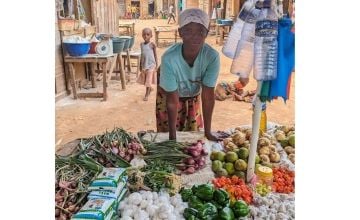
'Woman's Work'
Traditional gender roles limit women's decision-making power in Burundi. Ndayisenga is expected to do “woman’s work” in the household, or labour in the fields.
When women are denied the opportunity to achieve socio-economic independence, all of society suffers. Concern has identified gender inequality as a key driver of extreme poverty.
Before the market stall, Ndayisenga and her husband survived by labouring on the rice fields of local farmers. The work was hard, and poorly paid. They struggled to provide for their six children.
Graduation Programming
In partnership with Irish Aid, Concern in Burundi has provided cash assistance to 1,200 households living in conditions of extreme poverty since 2012.
The payments are one element of a development approach called Graduation Programming, in which Concern aims to break the cycle of extreme poverty.
Ndayisenga received a series of regular payments, which ensured that her family’s basic needs were met. She also received a once-off, larger payment which acted as capital to set up her market business.
“As my market stall was doing well, I bought a sow, raise piglets and sold them to the market traders. Now I have a pig business too. We have chickens too now, and keep the eggs for ourselves and sell any remaining eggs. With the income from my businesses we also leased farmland from the government, my husband grows rice on that land.”
Surviving the changing climate
People living in conditions of extreme poverty are the most vulnerable to climate-related shocks. Those with the least assets and resources struggle to stockpile for contingency purposes and can be pushed into complete destitution by a single event, such as a storm.
Ndayisenga lives in the province of Bubanza, where up to 70% of people are dependent on the crops grown in their small, household gardens. Extreme weather, primarily in the form of violent winds and hail, has hit these farmers hard in recent years.
Between 2018 and 2022, more than 330,000 Burundians were affected by natural disasters, with approximately 113,500 people left displaced from their homes.
A path out of poverty
After participating in the Graduation programme, Ndayisenga is now better insulated against such shocks. Her path out of extreme poverty is now clearer.
“I have used my savings to invest in my business, improve my house, and send my children to school. We replaced our straw roof with a corrugated iron roof, our mud floor with a concrete floor, and added solar lights to the house.
“Before the programme, my husband and I fought a lot about money, and he used to make all the decisions. The programme taught us financial management, and to share household responsibilities and decisions.
“I feel confident now, and there is peace in my household.”


